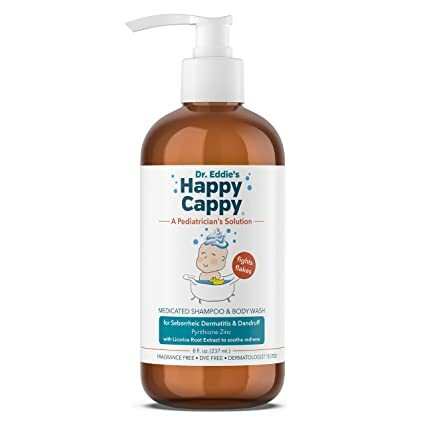Notifications
ALL BUSINESS
COMIDA
DIRECTORIES
ENTERTAINMENT
FINER THINGS
HEALTH
MARKETPLACE
MEMBER's ONLY
MONEY MATTER$
MOTIVATIONAL
NEWS & WEATHER
TECHNOLOGIA
TV NETWORKS
VIDEOS
VOTE USA 2026/2028
INVESTOR RELATIONS
COMING 2026 / 2027
ALL BUSINESS
COMIDA
DIRECTORIES
ENTERTAINMENT
FINER THINGS
HEALTH
MARKETPLACE
MEMBER's ONLY
MONEY MATTER$
MOTIVATIONAL
NEWS & WEATHER
TECHNOLOGIA
TV NETWORKS
VIDEOS
VOTE USA 2026/2028
INVESTOR RELATIONS
COMING 2026 / 2027
About Me
Dr. Eddie Valenzuela is an award winning pediatrician and the founder and CEO of Pediatric Solutions, LLC. Bringing over 10 years of experience as a licensed Doctor of Pediatrics, he developed a safe and child friendly moisturizing shampoo and body wash that avoids the harsh ingredients present in adult dandruff shampoos.
![]() mani mani -
June 12, 2023 -
Health -
happy cappy shampoo
-
2.2K views -
0 Comments -
0 Likes -
0 Reviews
mani mani -
June 12, 2023 -
Health -
happy cappy shampoo
-
2.2K views -
0 Comments -
0 Likes -
0 Reviews

Your skin is a marvelous organ, but when it's troubled, so are you. It's not just a matter of looking good - it's about feeling good too! That's why understanding skin conditions like Rosacea and Eczema is essential. Both conditions are common and often confused due to overlapping symptoms. This comprehensive guide helps you distinguish between Rosacea vs Eczema and provides a deeper understanding of each.
So, let's dive right into it. What is the fundamental difference between Rosacea and Eczema?
Rosacea is a chronic skin condition that mainly affects the face, resulting in redness, visible blood vessels, and sometimes, small, red, pus-filled bumps.
Eczema, also known as Atopic Dermatitis, can occur anywhere on the body and causes red, itchy, and inflamed skin. The primary distinguishing factor is the itching that accompanies eczema, which is typically absent in Rosacea.
Persistent facial redness, often resembling a blush or sunburn, is the hallmark of Rosacea. This redness typically starts at the center of your face and spreads to your cheeks, forehead, and chin.
Another distinguishing feature of Rosacea is the small, red, pus-filled bumps or pimples. It's important to note, though, that these are different from the blackheads and whiteheads associated with acne.
In severe cases, Rosacea can lead to a condition called Rhinophyma - a bulbous, enlarged red nose and thickened skin on the nose and cheeks. This is more common in men than in women.
The most telling symptom of Eczema is an intense itch that usually precedes the rash. The rash is often characterized by red to brownish-gray patches and may lead to small, raised bumps leaking fluid if scratched.
Unlike Rosacea that targets the face, Eczema can appear anywhere but most commonly shows up on the hands, feet, ankles, wrists, neck, upper chest, eyelids, inside the bend of the elbows and knees, and, in infants, the face and scalp.
Those suffering from Eczema often have very dry, sensitive skin. Over time, this can lead to thickened, cracked, scaly skin that may darken in color.
The exact cause of Rosacea remains a mystery. A combination of hereditary and environmental factors appears to be involved. Some potential triggers include hot drinks, spicy foods, alcohol, extreme temperatures, sunlight, stress, and certain medications.
Eczema is thought to be linked to an overactive response by the body's immune system to an irritant. It is commonly found in families with a history of allergies or asthma. Certain substances or conditions, such as soaps, detergents, stress, and the weather, can trigger it.
Proper diagnosis of Rosacea and Eczema is crucial as their treatments vary significantly. A doctor or dermatologist typically diagnoses these conditions through physical examination and by understanding the patient's symptoms and medical history.
There's no cure for Rosacea, but treatments can control and reduce the signs and symptoms. These include topical drugs, oral antibiotics, acne drugs, and laser therapy.
The primary goal of Eczema treatment is to prevent itching, inflammation, and worsening of the condition. Creams to control itching and repair the skin, drugs to control inflammation, and therapies like wet dressings and light therapy are commonly used.
Sun exposure can exacerbate both Rosacea and Eczema. Wearing a broad-spectrum sunscreen with an SPF of 30 or higher and protective clothing is key.
Choosing the right skincare products can make a big difference. Opt for non-abrasive, hypoallergenic products and avoid those containing alcohol, retinoids, or alpha-hydroxy acids.
Stress is a common trigger for both conditions. Incorporating stress-reducing activities like yoga, meditation, and deep-breathing exercises into your routine can help manage symptoms.
for more information on cradle cap, eczema, and dandruff visit happy cappy shampoo
